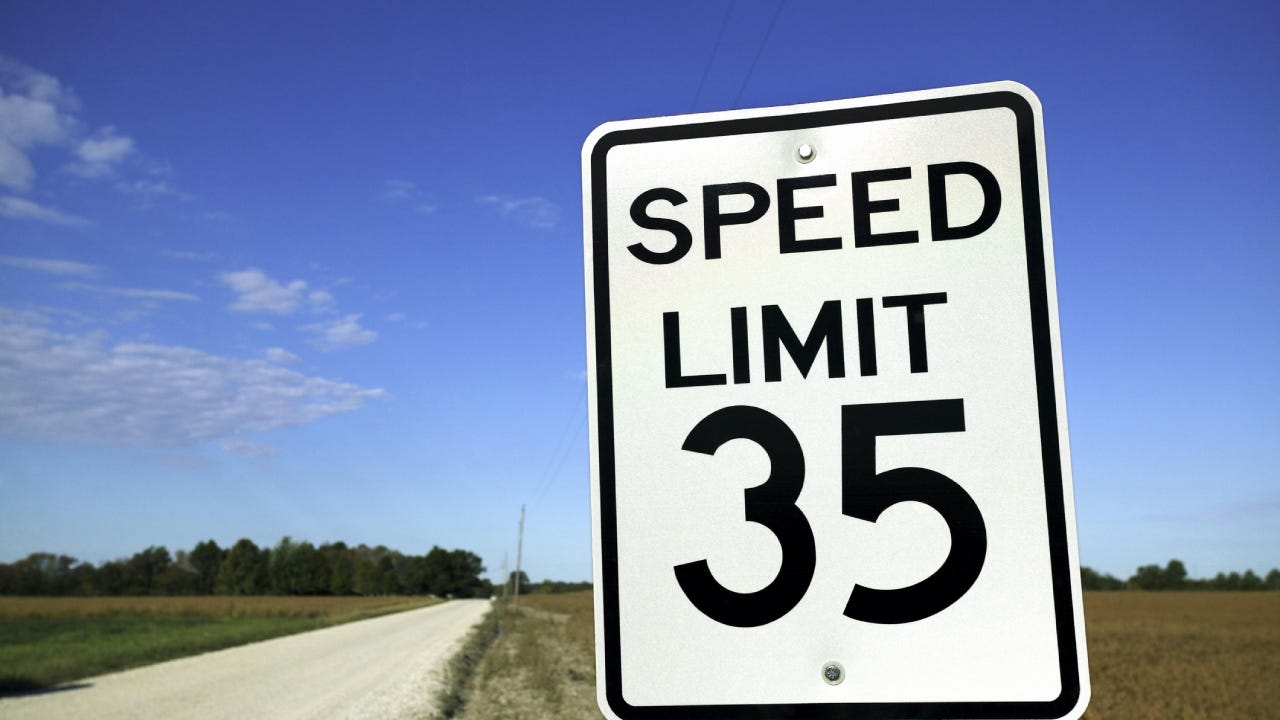How a speeding ticket impacts your insurance in Missouri

Getting a speeding ticket in Missouri can be stressful, not just because of the immediate cost of the fine, but also due to its potential long-term impact on your insurance rates. After paying the fine, you might wonder how much your insurance premium will increase at renewal. While it’s common for rates to rise following a speeding ticket, several factors can influence the extent of this increase. Bankrate’s editorial team is here to guide you through how a speeding ticket affects your insurance and offer tips on how to potentially minimize these costs.
How much is a speeding ticket in Missouri?
How much a speeding ticket in Missouri will cost can vary significantly based on where you live in the state and how fast you were driving over the posted speed limit. For instance, in Clay County, speeding fines range from $120 for exceeding the speed limit by 1-5 MPH to $229 for going 20-25 MPH over the limit. In Byrnes Mill, fines range from $82 for 1-5 MPH over the limit to $187 for 20-25 MPH over the limit. Throughout the rest of the state, you can expect the Missouri speeding ticket cost to fall within a similar price range.
In addition, Missouri uses a points system, where drivers collect points on their driver’s license based on certain offenses. Missouri drivers who accumulate eight or more points within 18 months will have their license suspended. For reference, a standard speeding ticket is usually three points.
The cheapest car insurance for Missouri drivers with a speeding ticket
When you have a speeding ticket on your record in Missouri, finding cheap car insurance can be challenging. It’s important to consider several factors when choosing a company, such as the insurer’s forgiveness policies for first-time offenders, discounts offered for safe driving courses and the overall reputation of the company for handling claims efficiently. Additionally, comparing quotes from multiple insurers can help you find the best rate despite your driving history.
Below are the five cheapest car insurance companies for Missouri drivers with a speeding ticket, based on average rates provided by Quadrant Information Services.
| Company | Avg. full coverage rate before speeding ticket | Avg. full coverage rate after speeding ticket | % difference after speeding ticket |
|---|---|---|---|
| USAA | $1,475 | $1,787 | +21% |
| Encompass | $1,737 | $1,941 | +12% |
| Progressive | $2,014 | $2,417 | +20% |
| Electric | $2,040 | $2,179 | +7% |
| Shelter | $2,280 | $2,365 | +4% |
What to do after a speeding ticket in Missouri
Drivers who get pulled over for speeding in Missouri will likely see their car insurance rate increase. Unfortunately, there is not much you can do to avoid getting a higher premium. However, there are several ways that you can potentially save money on your insurance after a speeding ticket.
Get quotes from other car insurance companies
Every car insurance company charges a different rate, regardless of your driving record. If you find that your premiums have increased significantly after receiving a speeding ticket, it may be worth getting new quotes from other insurers to find a lower rate. For instance, USAA’s average annual full coverage premium increases from $1,475 to $1,787 after a speeding ticket, while State Farm’s average jumps from $3,009 to $3,290. By comparing rates from various insurers, you might discover that some companies offer more competitive premiums or various discounts that help reduce your cost of coverage, even with a speeding ticket on your record.
Improve your credit score
Actuarial data shows that credit history often correlates to the likelihood of filing a claim, so insurers typically consider credit-based insurance scores when determining rates. Good credit generally aligns with average premiums, excellent credit can lower your rate and poor credit may increase your rate. Essentially, the higher your credit-based insurance score, the lower your premiums may be.
Avoid future tickets and accidents
Avoiding future tickets and accidents is crucial for stabilizing your car insurance rates over time. Insurance companies view a clean driving record as an indicator of lower risk, which can lead to lower premiums. By adhering to traffic laws, practicing safe driving habits and avoiding infractions, you demonstrate to insurers that you are a responsible driver, potentially resulting in more favorable rates during policy renewals. Consistently maintaining a good driving record is one of the most effective ways to keep your insurance costs manageable.
Frequently asked questions
-
There’s no single best car insurance company for drivers with speeding tickets since insurance is highly personalized. Many unique factors like location, age, vehicle make, coverage and more all play a role in determining your exact insurance premium. To find the best car insurance company for you after a speeding ticket, request quotes from several insurance providers and compare them. Remember to ask about discounts that might lower your insurance premium.
-
The average cost of car insurance in Missouri is $2,586 per year for a full coverage policy and $696 per year for a minimum coverage policy. For comparison, the average rate in the U.S. is $2,311 per year for full coverage auto insurance and $640 for minimum coverage. However, every driver pays a unique rate based on personal rating factors like ZIP code, age, credit history, claim history and the type of car they drive.
-
Missouri’s car insurance laws state that every driver must carry at least 25/50/25 personal liability insurance and 25/50 uninsured/underinsured motorist coverage. For more protection, insurance experts often encourage drivers to raise their coverage limits or purchase a full coverage policy, including collision and comprehensive coverage.
Methodology
Bankrate utilizes Quadrant Information Services to analyze June 2024 rates for all ZIP codes and carriers in all 50 states and Washington, D.C. Rates are weighted based on the population density in each geographic region. Quoted rates are based on a single, 40-year-old male and female driver with a clean driving record, good credit and the following full coverage limits:
- $100,000 bodily injury liability per person
- $300,000 bodily injury liability per accident
- $50,000 property damage liability per accident
- $100,000 uninsured motorist bodily injury per person
- $300,000 uninsured motorist bodily injury per accident
- $500 collision deductible
- $500 comprehensive deductible
To determine minimum coverage limits, Bankrate used minimum coverage that meets each state’s requirements. Our base profile drivers own a 2022 Toyota Camry, commute five days a week and drive 12,000 miles annually.
These are sample rates and should only be used for comparative purposes.
Incidents: Rates were calculated by evaluating our base profile with the following incidents applied: clean record (base) and single speeding ticket.
Why we ask for feedback Your feedback helps us improve our content and services. It takes less than a minute to complete.
Your responses are anonymous and will only be used for improving our website.








